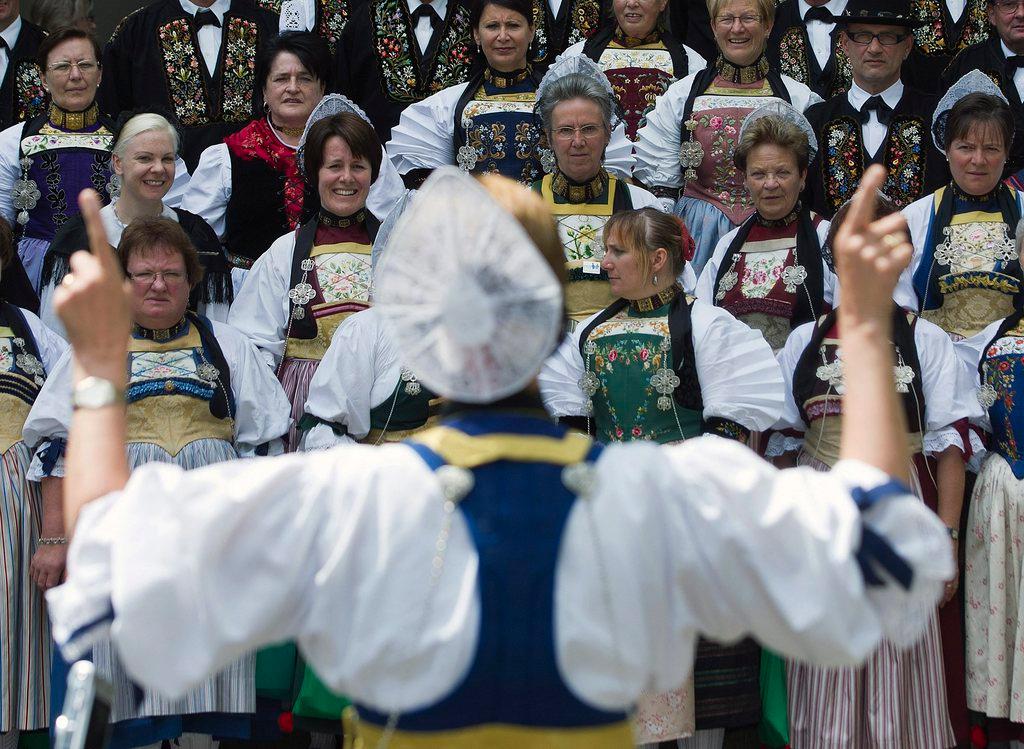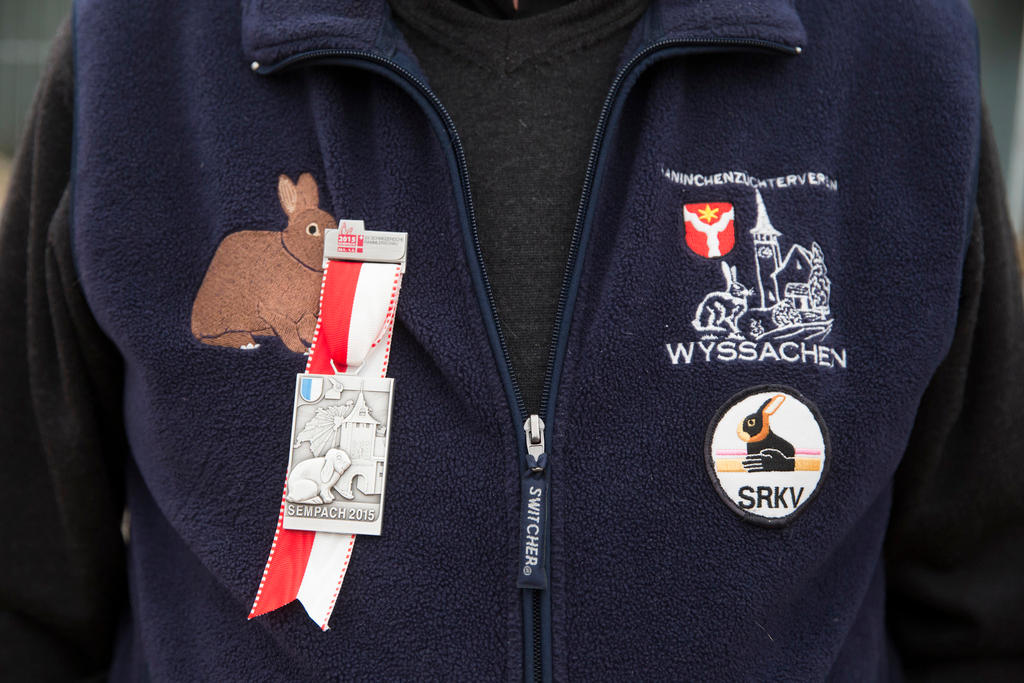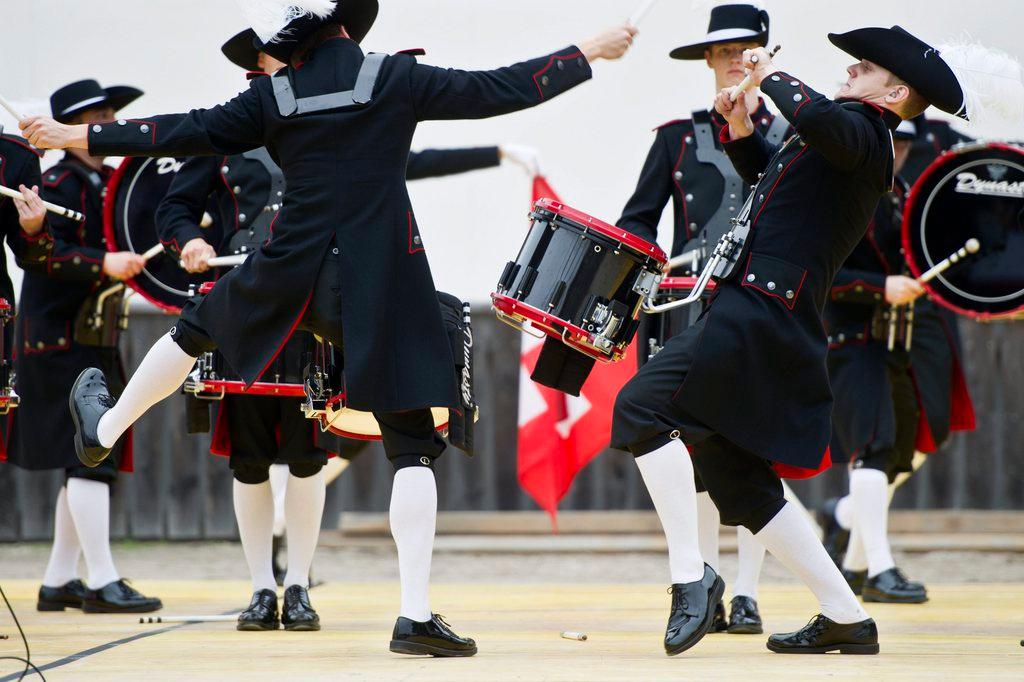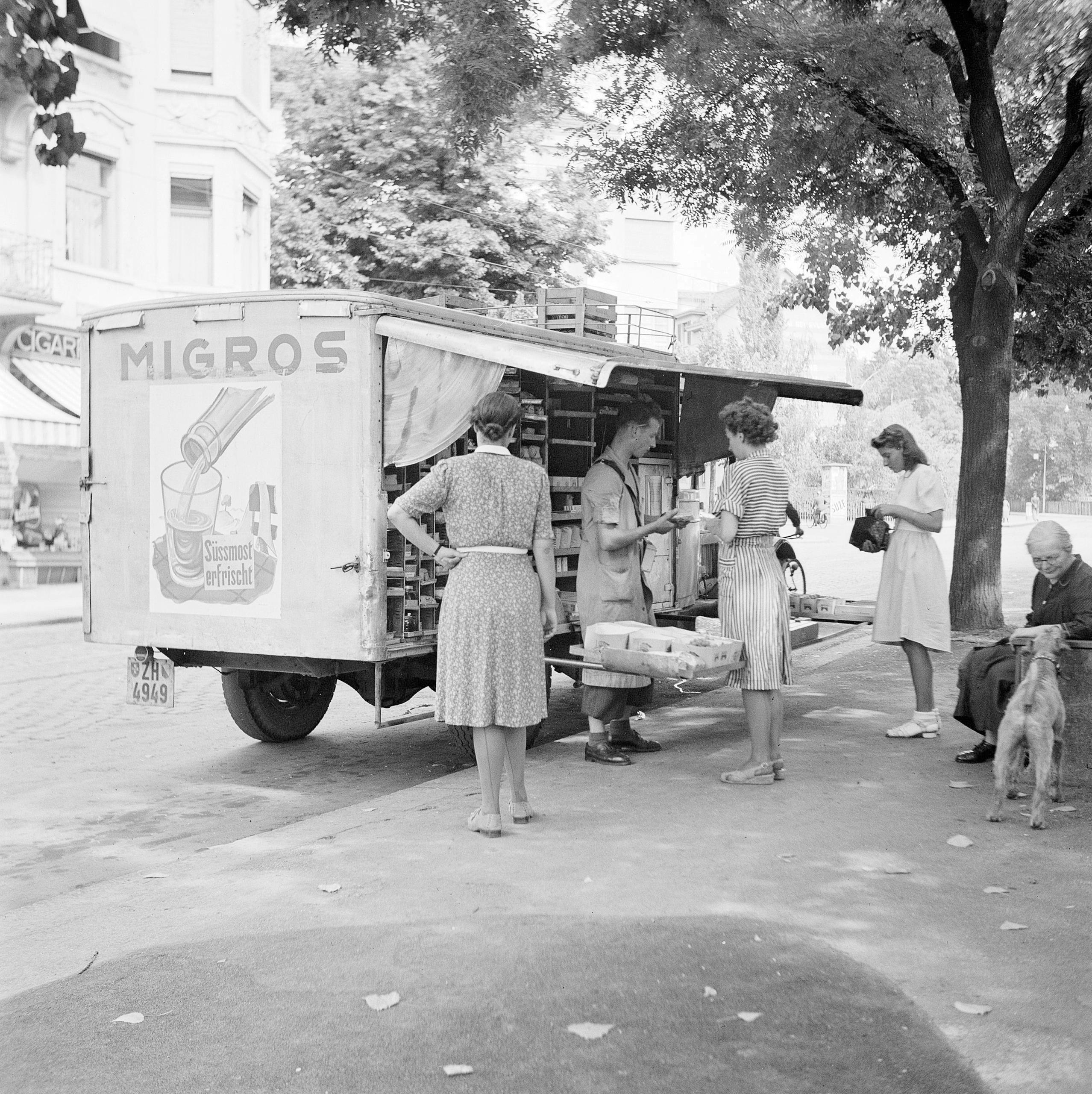The local club as a school of democracy

There are tens of thousands of them, all around the country: clubs and associations. Often these are very local groups. The classic example is the village rabbit-breeders’ club.
In Switzerland these groups are important for learning democracy, says Fanni Dahinden of the Vitamin B centre in Zurich, which advises and supports volunteer boards and knows what the issues for clubs and associations are.
Its name is based on a slang expression in German for the power of networking.
#Dear Democracy
This text is part of #DearDemocracy, a platform on direct democracy issues, by swissinfo.ch. The views expressed in this article are solely those of the author, and do not necessarily reflect the views of swissinfo.ch.
ClubsExternal link and associations affect people’s lives in Switzerland from cradle to grave: from the birthing centre to the playgroup, from the choir and the sports club to, finally, the Panther Club for seniors – behind everything there seems to be an organised group.
Even when we die there may be a cremation association that ensures dignified burial. About 70,000 to 100,000 clubs and associations exist across the country– there are no precise figures, because in Switzerland it is not necessary for such groups to be legally registered.
“This often surprises people from other countries,” says Christa Camponovo in the little office of Vitamin BExternal link in Zurich. She is the former head and still works for the organisation as a consultant.
The lack of legal formalities here is all the more striking because even FIFA is set up as an association. The powerful international football organisation is, however, on the register of companies – and for decades it has been in and out of the news as top officials have been accused of corruption.
No red tape
Vitamin B supports and advises volunteer and honorary board members. It is funded by the Migros retail chain’s cultural foundation.

In many countries associations have to be registered officially. In states with authoritarian regimes the requirement to be registered can be used as a means of control or suppression.
Here in Switzerland, three people are all you need to found a club or association. You also need to have a set of articles defining the aim of the organisation, and a committee – and that’s it.
The relatively simple and quick procedure is not the only advantage. Another is the limitation of liability: clubs are liable only to the extent of their organisation’s funds. When a group of people wants to open a bank account for a charitable purpose, they often start an association, says Camponovo.
Learning to talk and listen
Clubs and associations are also important for learning democracy, according to Dahinden, who is current head of Vitamin B.
“They have democratic structures, and their supreme decision-making body is the general meeting,” she says.
There is a central role for compromise in decision-making. Club presidents cannot run their organisations like a CEO, adds Camponovo.
It is precisely here that problems arise, which both women encounter regularly. There have been cases where presidents wanted to keep figures on expenditures and receipts confidential. That is not allowed, of course, says Camponovo.
Outgrowth of revolution
Are clubs a counterweight to companies, which are mostly run from the top down by a single boss, the CEO?
Clubs have their roots in the Enlightenment, and societies and clubs of all sorts became a feature of 18th-century life where private people met to discuss public issues.
Clubs really made a great leap forward when the French Revolution came to Switzerland in 1798. At this time, the old trade guilds were abolished. Those were the compulsory associations of people having the same trade or profession. Basel historian Beatrice Schumacher recently published a study on the history of associations in SwitzerlandExternal link under the sponsorship of Vitamin B.
Schumacher finds that one should not idealise clubs and associations. “They often served to advance the interests of particular groups,” she says.
Clubs were for a long time shaped by upper-class men, with women and workers being left out.
Brass bands and shooting clubs, for example, only let in women from the 1970s on. Also, individual members often had little say because the board made all decisions, says Schumacher: “One might ask if cooperatives are not more democratic.”
+ Cooperatives are alternative economic models
Keeping up with the times
Popularity of clubs remains unchanged. Every year new ones are started – for example, in the areas of urban gardening or veganism. Since more refugees are arriving in Europe, there are also new groups promoting integration.
Refugee organisations, which are involved on the ground in Greece, for example, have no problems finding new recruits, says Camponovo. And in Switzerland the setting up of refugee hostels often leads to more volunteering locally, especially in rural areas.
The helpers offer language courses. Also, Swiss like to travel overseas – and after their return from developing countries often start a humanitarian project.

Traditional associations have trouble getting new members, though. The staff of Vitamin B are then called upon and they help clubs to reinvent themselves.
In the city of Zurich, for example, the Entlisberg neighbourhood association has set up its own chicken coop. The local inhabitants meet new people through being involved in care and feeding of the fowl.
A women’s club now offers German courses in the park. If the members are ready and willing to try something new, clubs and associations certainly have a future.
Translated from German by Terence MacNamee

In compliance with the JTI standards
More: SWI swissinfo.ch certified by the Journalism Trust Initiative













You can find an overview of ongoing debates with our journalists here . Please join us!
If you want to start a conversation about a topic raised in this article or want to report factual errors, email us at english@swissinfo.ch.